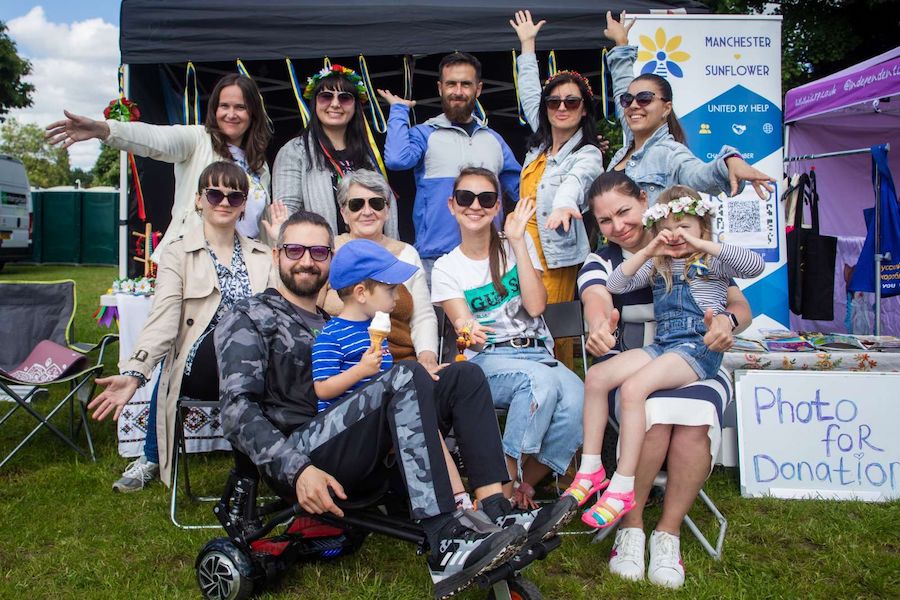Mental health service launched to help people affected by the Manchester bombing
- Written by Emily Oldfield
- Last updated 8 years ago
- City of Manchester, Health & Wellbeing

A dedicated mental health service has been set up to help people affected by the 22 May 2017 terror attack on Manchester Arena.
The Manchester Resilience Hub run by the NHS will support anyone who may be struggling with their mental or emotional wellbeing following the traumatic events in which 22 people died and many more injured.
From helping the very young who may have been directly affected by the incident, to family members and emergency professionals involved in the response to the attack – the service is intended to be a professional resource for people who may still be struggling to cope.
The service will involve a short questionnaire and assessment by a team of specialists so people affected can get the best support for their circumstances.
It is over two months since the tragic terror attack on the Ariana Grande concert at Manchester Arena, but the complicated nature of trauma, means that many of those affected may still be finding it difficult to maintain their emotional and mental health.
Due to the emotional impact which comes with such a traumatic incident, some people may be able to continue afterwards but then develop mental health problems later. Others may be bottling feelings in uncertainty and many people carry on functioning, but feel deep down that there is something not ‘okay’. Everyone can be helped.
The service provided by the hub, under the clinical lead of Dr Alan Barrett, includes access to mental health experts, trained to help people who have experienced trauma.
Many people were deeply affected by the incident – especially those involved or helping in the immediate aftermath – though for some people a natural emotional recovery is possible. However, due to the difficult nature of trauma, it is also the case that some people will require deeper psychological support.
Staff involved with the hub will be able to give advice about people’s reactions and offer professional support dependent on the individual’s needs, working with other agencies to deliver proper packages of care.
This personal, professional approach means that people do not need to feel alone in their feelings. A self-referral form will be published on the Manchester Resilience Hub site soon. Until then the team can be contacted on 0333 009 5071.
The service is hosted by Pennine Care NHS Foundation Trust in partnership with voluntary sector agencies and other NHS services.
The team behind it are also planning an Emotional Wellbeing Screening which aims to reach out to those still feeling the mental and emotional implications three months after the incident, and then again at six, nine and 12 months to identify people who may need further support.
Following the attack, an immediate trauma response service was set up as a pop-up in the Northern Quarter, but The Manchester Resilience Hub will offer more long-term, ongoing mental and emotional care.
- This article was last updated 8 years ago.
- It was first published on 31 July 2017 and is subject to be updated from time to time. Please refresh or return to see the latest version.
Did we miss something? Let us know: [email protected]
Want to be the first to receive all the latest news stories, what’s on and events from the heart of Manchester? Sign up here.
Manchester is a successful city, but many people suffer. I Love Manchester helps raise awareness and funds to help improve the lives and prospects of people across Greater Manchester – and we can’t do it without your help. So please support us with what you can so we can continue to spread the love. Thank you in advance!
An email you’ll love. Subscribe to our newsletter to get the latest news stories delivered direct to your inbox.
Got a story worth sharing?
What’s the story? We are all ears when it comes to positive news and inspiring stories. You can send story ideas to [email protected]
While we can’t guarantee to publish everything, we will always consider any enquiry or idea that promotes:
- Independent new openings
- Human interest
- Not-for-profit organisations
- Community Interest Companies (CiCs) and projects
- Charities and charitable initiatives
- Affordability and offers saving people over 20%
For anything else, don’t hesitate to get in touch with us about advertorials (from £350+VAT) and advertising opportunities: [email protected]

Fast, fierce and unmissable: Manchester Thunder are bringing Netball like you’ve never seen it before!


Review: Girl on the Train at LOWRY is a’ tour de force in psychological drama’

Where the Michelin Guide recommends to eat in Manchester


















